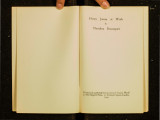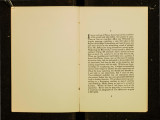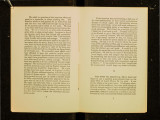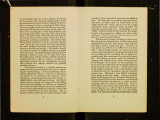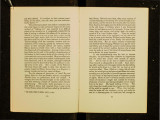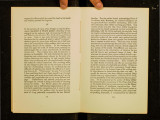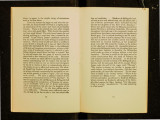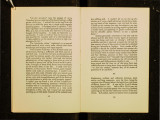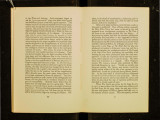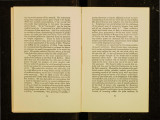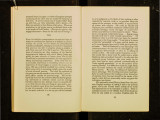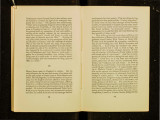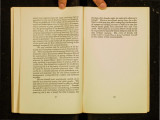| Title |
Henry James at Work |
| Call Number |
PS2123 .B67 1924; Record ID 9920444750102001 |
| Date |
1924 |
| Description |
Bosanquet, Theodora. Henry James at work. London: Printed and published by Leonard and Virginia Woolf at the Hogarth Press, 1924 PS2123 B67 1924 Cream paper wrappers printed in green. |
| Creator |
Theodora Bosanquet |
| Publisher |
Digitized by J. Willard Marriott Library, University of Utah |
| Subject |
Hogarth Press; James, Henry, 1843-1916 |
| Type |
Text |
| Format |
application/pdf |
| Language |
eng |
| Collection Name |
Rare Books Collection |
| Holding Institution |
Rare Books Division, Special Collections, J. Willard Marriott Library, University of Utah |
| Rights |
Digital Image © Copyright 2014, University of Utah. All rights Reserved. |
| Scanning Technician |
Cedar Gonzalez |
| Digitization Specifications |
Original scanned with Hasselblad H2D 39 megapixel digital camera and saved as 600 ppi tiffs. Display images created in Adobe Photoshop Lightroom 4 and generated in Adobe Acrobat ProX as multiple page pdf. |
| ARK |
ark:/87278/s6mk8000 |
| Setname |
uum_rbc |
| ID |
294830 |
| Reference URL |
https://collections.lib.utah.edu/ark:/87278/s6mk8000 |



